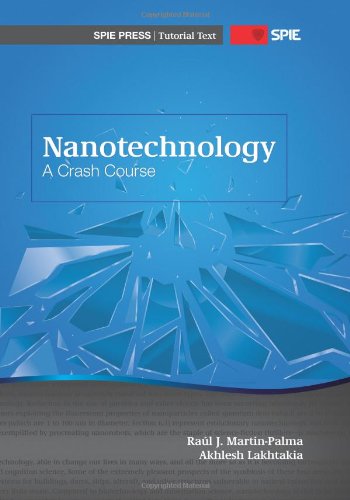

Most ebook files are in PDF format, so you can easily read them using various software such as Foxit Reader or directly on the Google Chrome browser.
Some ebook files are released by publishers in other formats such as .awz, .mobi, .epub, .fb2, etc. You may need to install specific software to read these formats on mobile/PC, such as Calibre.
Please read the tutorial at this link: https://ebookbell.com/faq
We offer FREE conversion to the popular formats you request; however, this may take some time. Therefore, right after payment, please email us, and we will try to provide the service as quickly as possible.
For some exceptional file formats or broken links (if any), please refrain from opening any disputes. Instead, email us first, and we will try to assist within a maximum of 6 hours.
EbookBell Team

0.0
0 reviews Contents
- To the Reader
- Nomenclature
- Low-Dimensional Structures
- Properties of Nanostructures
- Nanofabrication
- Characterization of Nanostructures and Nanomaterials
- Nanomaterials and Applications
- Future Prospects
- Index
Suppose that you recently graduated with a B.S. degree in science or engineering and will commence your first professional employment tomorrow. Earlier this afternoon, your manager called to ask if you know something about nanotechnology, so that tomorrow you can begin developing an internal proposal for your division. But either your college did not offer a course on nanotechnology or you decided not to take one. You need a crash course in nanotechnology, just to get you off the ground.
Suppose that you are a doctoral student in a department whose candidacy examination requires you to write a 5 10-page research proposal on an emerging topic assigned by the faculty committee. Suppose that your assigned topic intersects with nanotechnology, but all that you know about nanotechnology came from a couple of hour-long graduate seminars that you attended the previous semester. You need a crash course in nanotechnology, not only to write an impressive introduction but also to acquaint yourself with terminology to conduct efficient searches on Google Scholar, Web of Science, Scopus, etc.
Suppose that you are a post-doctoral researcher at either an academic or an industrial research institution. Your supervisor has asked you to advise a shining undergraduate student for a summer project in nanotechnology, although the focus of your own research is elsewhere. You need a crash course in nanotechnology, to start the youngster off in a promising direction.
Suppose that you are a new assistant professor. Your departmental head advises that your research proposal to a government program to assist new faculty members begin research programs lacks that ''wow'' factor that would virtually guarantee success. ''Put in a nano angle,'' you are told. You need a crash course in nanotechnology, to clothe your proposal in the glory of ''nano.''
Suppose that you are a middle-aged professor undergoing a midlife crisis. Instead of changing your family or lifestyle, you may choose to change your research focus to an emerging research area. You need a crash course in nanotechnology, to assess your current resources and future needs.
With your particular need in mind, we persuaded SPIE Press to publish our short and readable introduction to nanotechnology. While Nanotechnology: A Crash Course is unlikely to convert you overnight into a nanostar, it would meet your immediate need and very likely help you steer your professional life in a new direction